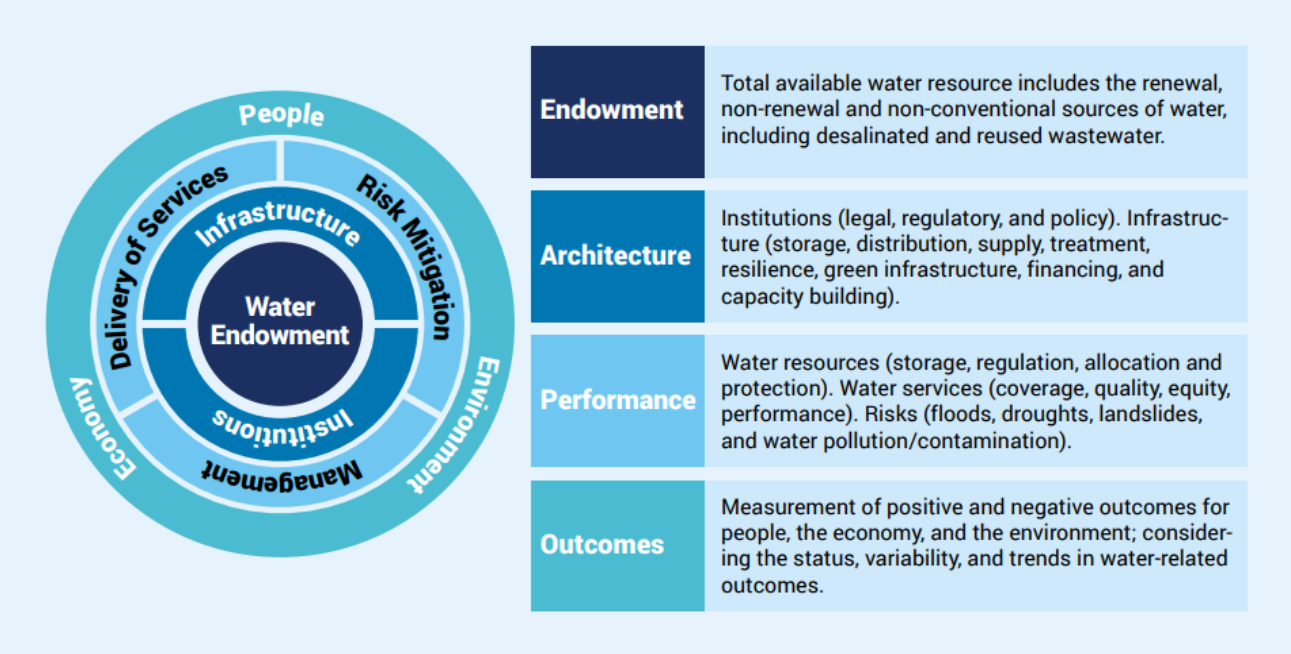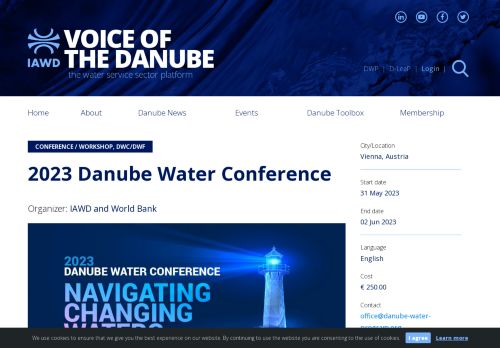Applying the Water Security Diagnostic Framework in Danube countries
Water is a cross-sectoral topic by nature, intersecting with important development issues, including energy, food, biodiversity, and climate change. In order to assess the status and importance of water in a country’s development agenda, the World Bank launched the “Water Security Diagnostics Initiative,” seeking to produce studies that help create a narrative on water in a broader context, its importance for sustainable development, and allowing for an informed debate with decision makers beyond line Ministries.
Guiding such assessments, the Water Global Practice of the World Bank has developed a Water Security Diagnostic Framework (see the figure below).

The Framework intends to establish a consistent and structured approach to diagnosing water security without being overly prescriptive. The Framework analyzes the relationship between a country’s water endowment (given and subject to change due to climate change) and its linkage to social, economic, and environmental outcomes. This is done by examining the role of the water sector architecture, encompassing infrastructure and institutions, in the performance of the water sector in managing water resources, delivering water services, and mitigating water-related risks. This holistic approach is important to identify the most severe risks and entry points for actions to improve overall water security.
Pilot roll-out and subsequent assessments
The roll-out of the assessment methodology includes a number of important steps, starting with a preparatory diagnosis, stakeholder mapping and data collection, and accompanied by stakeholder interviews to gain first deeper insights. In the frame of an initial stakeholder consultation workshop, a first draft water security narrative is presented and discussed, allowing for a fact-checking exercise to eliminate any factual errors, as well as the identification of further relevant data and information sources. An updated water security narrative is then presented and discussed at a second stakeholder consultation workshop, forming the basis for discussions on actions to overcome identified challenges and risks in order to improve water security. The application of a multi-criteria analysis based on a participatory approach helps to prioritize the identified actions, which form a key element of the water security assessment. The methodology was piloted with the first stakeholder consultation workshops organized in Croatia and Serbia.
Following a fine-tuning of the approach, the methodology was then rolled-out in Albania, Bosnia and Herzegovina, and Montenegro, where a first round of stakeholder consultation workshops has been completed. The water security assessments, including the action plans for the respective countries, form an essential analytical basis for the further engagement with water sector stakeholders and decision makers on reform requirements, capacity building, and investment needs. The work highlighted, once again, the complexity and inter-sectoral nature of water issues, specifically in the context of a changing climate.
This is an ongoing activity that has not been completed yet. A presentation recording and the slides on the Water Security Diagnostics for the Danube Region can be found on the event page of the Danube Water Conference 2023 under “Session 3 - The wider perspective: Building a water secure sector in the face of the climate emergency” which is linked below.
Related
VoD - 2023 Danube Water Conference
The 2023 Danube Water Conference “Navigating Changing Waters: New ways to overcome emerging challenges of the water sector in the Danube region” will convene on 31 May to 2 June, 2023 in Austria's capital city Vienna, back...
